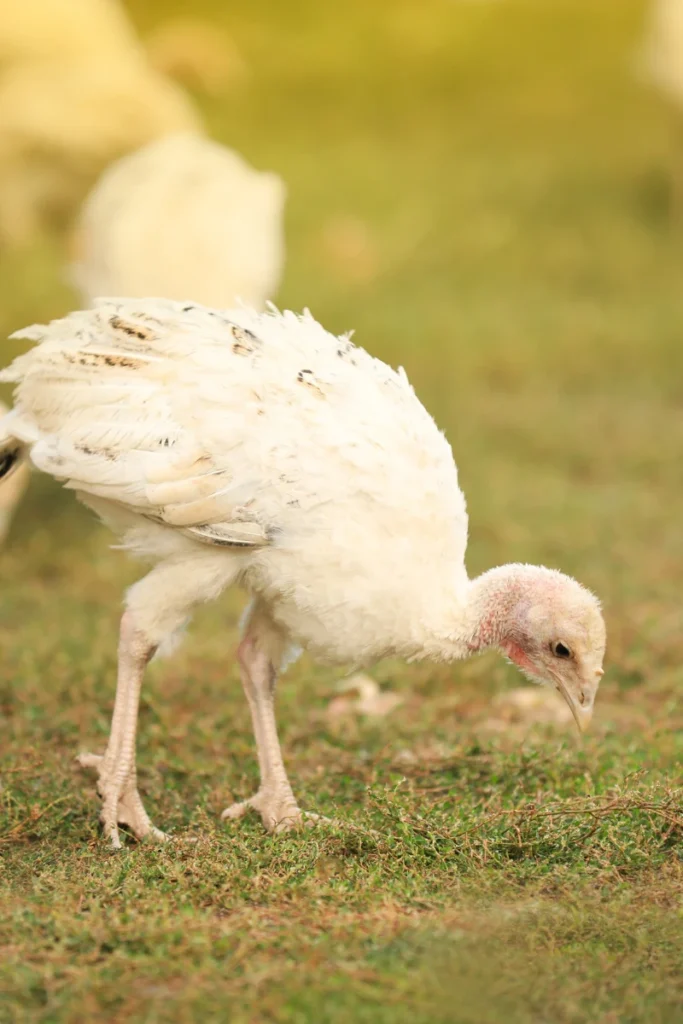There comes a point in every homesteader’s turkey-raising journey when you look out at those strutting birds and wonder, Is it time? Whether you’re aiming for a holiday feast or simply filling the freezer, butchering turkeys is a blend of observation, timing, and a little bit of gut instinct. It’s not just about a date on the calendar—it’s about reading the signs your birds are giving you and knowing what to look for before harvest day.le bit of gut instinct.
Let’s talk through what to look for—age, weight, breed, behavior—and how to prepare for a smooth, humane processing day when the time comes.
How Old Should Turkeys Be Before Processing?
Most people look for a set number—like 16 or 20 weeks—but the truth is, the ideal butchering age depends on your breed and goals.
If you’re raising broad breasted whites or bronzes, they tend to reach a good market weight around 16 to 20 weeks. These birds grow fast and large, and waiting much longer can cause leg issues or unnecessary feed costs.
Heritage breeds, on the other hand, are a different story. They’re slower to mature, and many folks wait until 24 to 30 weeks, sometimes longer, depending on the desired size and flavor. You won’t get the same broad breasts as the commercial varieties, but the meat is rich and deeply satisfying.
The calendar helps, but it’s not the only factor.
What Weight Should a Turkey Be Before Butchering?
Weight is a better indicator than age in most cases—especially if you’ve had a strange season or mixed ages in the flock.
Broad breasted toms can top 30–40 lbs, while hens often range from 15–20 lbs. Heritage toms generally land between 16–25 lbs, and hens closer to 10–16 lbs.
But here’s the thing: you don’t need to hit a magic number. Instead, feel the breast muscle—when it’s well developed and broad along the keel bone, that’s your signal they’re about ready.
If the keel feels sharp or the bird still looks lanky, give it another couple of weeks.
Breed makes a big difference in how fast your turkeys grow and what weight to aim for.
| Breed | Average Butcher Age | Ideal Weight (Tom) | Ideal Weight (Hen) |
|---|---|---|---|
| Broad Breasted White | 16–20 weeks | 30–40 lbs | 15–20 lbs |
| Broad Breasted Bronze | 18–22 weeks | 25–35 lbs | 14–18 lbs |
| Heritage Breeds (Bourbon Red, Narragansett, etc.) | 24–30+ weeks | 16–25 lbs | 10–16 lbs |
If you’re raising turkeys for Thanksgiving dinner, time your hatch date so they’re at peak size by early November.

Other Signs Your Turkeys Are Ready
Watch their behavior. Turkeys nearing maturity tend to eat less, move a little slower, and start getting grumpier with one another. If you notice them pecking more, pacing, or just looking “done,” they probably are.
You’ll also start to see diminishing returns on feed—meaning they’re eating just as much but gaining very little. That’s a good sign it’s time to process.
And if you’re watching the calendar with the holidays in mind, give yourself a buffer. I like to plan butchering turkeys 3–4 days before Thanksgiving if I’m keeping the bird in the fridge, or at least a week out if I plan to freeze.
Planning for the Day
Butchering turkeys is a different animal—literally—than chickens. They’re heavier, harder to handle, and require a bit more prep.
You’ll want:
- A solid table and sharp knives
- A plucker (or patience if you’re hand-plucking)
- Something to scald in—like a turkey-sized pot over a propane burner
- Ice and coolers for chilling
The day before, pull feed (but not water) to reduce mess during evisceration. Make sure your setup is clean, shaded, and ready before you bring the first bird over.
If this is your first time, go slow. Give yourself grace. It’s okay if you don’t move like a professional processor—the goal is to handle the birds with care and do the job well when butchering turkeys.
FAQ: Quick Answers for New Butchers
Can I butcher turkeys too early?
Yes—especially heritage breeds. If you process too young, you’ll get a scrawny bird with underdeveloped meat. Wait for that broad breast and some heft.
What if I wait too long?
You can absolutely butcher older birds. Just know that the meat may be tougher and better suited to slow cooking, stews, or grinding.
Do I need to rest the bird before cooking?
Yes. Whether you’re refrigerating or freezing, let the turkey rest at least 48 hours in the fridge to pass through rigor mortis. It’ll be more tender and easier to cook.

Trust Yourself—and Your Birds
There’s no perfect chart or calculator for deciding about butchering turkeys. But after a season of feeding, watching, and caring for them, you’ll know. The signs are there in their weight, their behavior, and that quiet shift when it’s time to thank them and bring them full circle.
You’ve got this.




